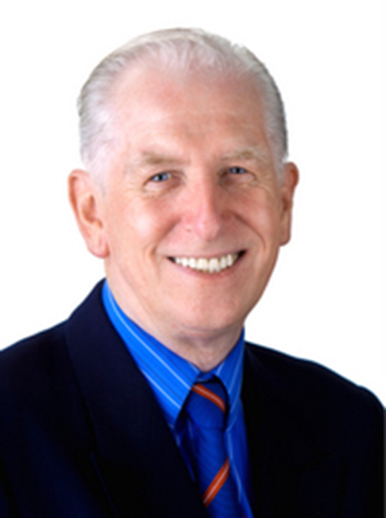By Dr Charles Margerison
President – Amazing People Worldwide
What can we learn about our careers from amazing people like the two-time Nobel Prize winner – Dr Marie Curie, or the playwright – William Shakespeare, or Harriet Tubman – the slave who became a civil rights leader? Their life stories can give insights into what is possible, and gives an opportunity to research the psychological factors of career success.

I have reviewed the life stories of over 500 amazing people, to identify themes which we can all use for our own personal development. They include entrepreneurs, doctors, musicians, scientists, engineers, architects, explorers, spies, teachers, writers, politicians, and many others.
Some of them, such as Andrew Carnegie and Thomas Edison – the mega rich industrialists, had little or no formal education. Some technology entrepreneurs, like Steve Jobs and Bill Gates, left college without qualifications to follow their business dreams. Other high achievers, like Indira Gandhi and Marie Curie, were well educated. So, there is no particular one pathway.
With a focus on the psychology of career self-development, we look at key character aspects associated with achievement and success. In particular, we focus on what amazing people did. These key aspects are reflected in both their words and deeds.
Each of our amazing people had a start point that we can refer to as their ‘self-talk.’ In each case, this is based on their level of optimism or pessimism with regard to the issues they faced. They all had hopes and fears. Amazing people converted their fears and concerns into hopes and plans.
As they interacted and learned from others, they developed a personal script. At the general level, they focused on concepts and ideas that had a personal appeal. In effect, they observed family, friends, and colleagues – and said ‘I would like to do that,’ or ‘I do not want to do that.’
Mozart heard his father play the violin and was keen to do likewise. Harriet Tubman was born to a family in slavery, and resolved to escape and use her time and abilities as she chose. Marie Curie made the bold decision to follow her sister to study for a science degree in France, as women were not allowed to enter universities in Poland, where she was born.
Some amazing people have said they reacted to events and conditions. They observed fear and developed plans to give themselves and others hope. Dr Barnardo started his shelters for the homeless when he saw boys with no homes in London. Sojourner Truth was a slave in America who ran away to make a new life because of the harsh conditions. Florence Nightingale felt she had to serve as a nurse as part of her religious beliefs, to help those in need. In each case, they found a cause they believed in that they felt was important both for their own lives and those they served.
In each case, the careers of these people started when they developed their own positive life script plan. That is the equivalent of a personal map. Although each script is different, they all have the following elements:-
It is clear that each amazing person had their own pattern of work preferences that were central to their self-talk and script. For example, Shakespeare focused on writing and did not try to become a musician. Mozart focused on music and did not try to be a scientist. Marie Curie focused on research and did not try to be a business entrepreneur. Carnegie focused on being a businessman and did not try to be a doctor.
Therefore, identifying ones preferences and interests early in life is an important part of career success. Increasingly, schools are trying to help students in this area, and some use psychometric-designed questionnaires. My work in that area indicates that it is difficult for students with limited or no work experience to make choices. As an alternative, I have tested an approach linked to the careers of amazing people.
Career choices are a dilemma for many. For example, there is a recognition that to succeed in medicine, accounting, engineering and other professions, will take up to five years to qualify. This is followed by many more years of practise in order to develop the requisite skill levels. Therefore, the career choice decision is one that will determine one’s lifestyle and level of wellbeing.
The understanding of amazing people career exemplars can help people to clarify their interests. The important thing is to give people the opportunity to share and compare their views with others. It is this discussion above all that enables people to identify their preferences and make choices. Identifying and recognizing character strengths and the skillsets required to succeed in any role is key.
By studying the life stories of amazing achievers, students can be inspired. As a result, they can choose a career with which they identify and follow their own amazing adventures.
For more information, please visit – www.amazingcareerinfo.com

Dr Charles Margerison, President and founder of Amazing People Worldwide, is a Psychologist. He is also President of Amazing People Schools. Dr Margerison has consulted widely for major organizations in the fields of organizational and educational psychology. He was previously Professor of Management at Cranfield University, UK, and the University of Queensland, Australia. He founded Amazing People Worldwide in 2006 and is supported by a dedicated global team. He previously co-founded Emerald Publications, and Team Management Systems and has authored more than 30 books. Dr Charles is also the creator of ‘Can Do Kids Worldwide, a virtual music group that helps students to learn about countries and cultures through music. He has also developed Imagineland, for early learners. You can follow him on Linked in .
For more information, please email info@amazingpeopleworldwide.com
Websites:



Copyright © 2021. Amazing People Worldwide.
All Rights Reserved.
This site is protected by reCAPTCHA and the Google
Privacy Policy and Terms of Service apply.



